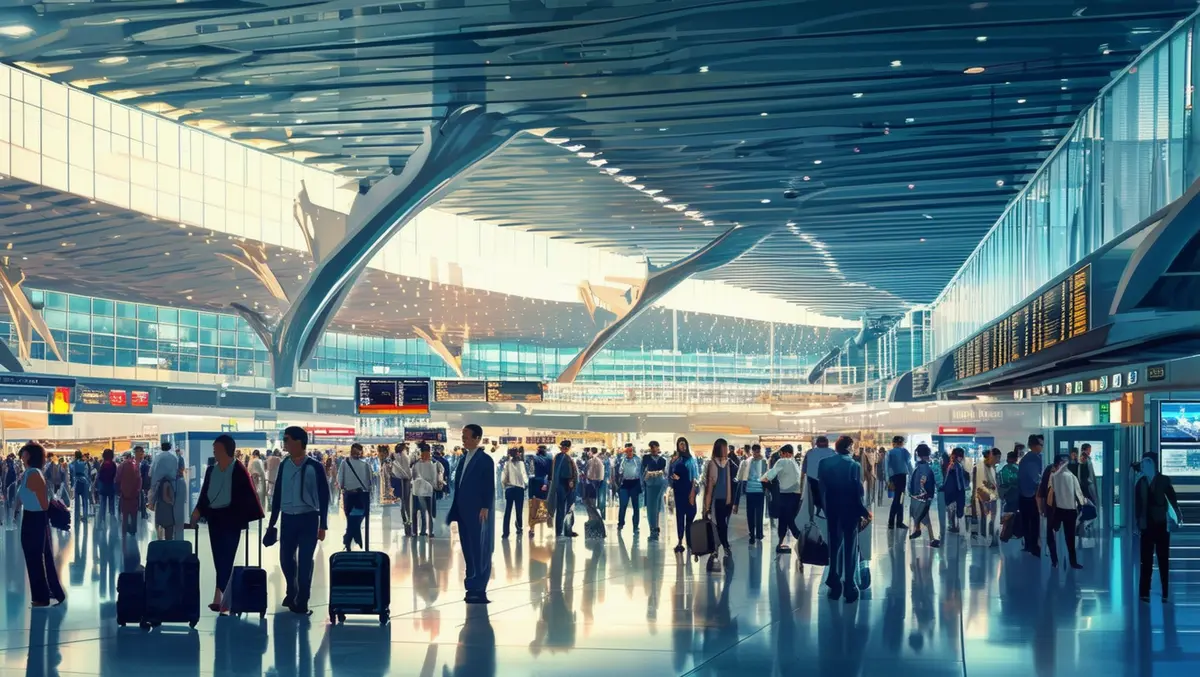
Business travel challenges for APAC in 2024 revealed by SAP Concur
SAP Concur has released findings from its latest Global Business Traveller Survey, highlighting significant challenges facing business travel in 2024. The survey, which involved 3,750 travellers and 600 travel managers worldwide, identified key issues such as travel disruptions, sustainability concerns, and the integration of AI-enabled travel solutions.
The survey included responses from 850 individuals in Asia Pacific countries, including Australia, New Zealand, Japan, Korea, India, Singapore, and Malaysia. Sushant Jain, Chief Revenue Officer, Asia Pacific & Japan, Spend Management, SAP, remarked on the findings: "Measures businesses could take include improving the flexibility of their travel policies and better harnessing emerging technology like AI to obtain data-based insights to streamline workflows, minimise disruption, cut costs, and boost employee satisfaction."
A major finding is the prevalence of travel disruptions. Approximately 86% of APAC travellers reported having to make last-minute changes over the past year due to delays, cancellations, or the need to re-route. Because of these disruptions, 82% of respondents opted to add "booking buffers" to their journeys to accommodate schedule changes. Organisations are advised to consider allowing additional turnaround time, providing private connecting transport, and adding features to travel management tools to ease rebooking processes.
In terms of reluctance to travel, 42% of APAC business travellers cited safety concerns, while 36% mentioned political or social issues as reasons for declining business trips. The concept of combining leisure and business, or "bleisure," faces challenges as companies implement cost-saving measures. For instance, 28% of APAC companies are reducing employees' ability to work remotely while travelling. Furthermore, 22% of employees indicated they would refuse a business trip if they couldn't extend it for personal travel, with 26% stating they would decline if adjustments couldn't be made outside company policy.
Sustainability is another significant concern among APAC business travellers. Over a quarter (28%) expressed willingness to decline a business trip due to environmental concerns or the inability to choose sustainable options. Despite this, 28% reported their companies had cut back on paying more for sustainable travel options over the past year. While 31% of travellers said their companies prioritise sustainability, travel managers globally experience difficulties in booking sustainable options due to inadequate travel budgets.
The survey also highlighted issues of unequal access to travel opportunities. Although 72% of APAC business travellers believed travel was critical for career advancement, the same proportion felt they received unequal travel opportunities compared to colleagues. Reasons for this discrepancy include seniority levels (22%), age (18%), and gender (10%).
There is notable openness towards AI-enabled travel solutions, with 95% of APAC travellers willing to use such options. However, there is a prevailing "wait and see" attitude, as only 6% are currently comfortable with AI-enabled travel solutions. Additionally, 90% of business travellers seek more company support regarding personal data protection, potential biases, and protection from repercussions if AI-assisted bookings violate company policies.
"While leaders won't be able to solve travel disruption overnight, they can make it more manageable for staff," said Sushant Jain. "By introducing measures to improve travel flexibility, training opportunities, and next-generation technologies, APAC organisations can adapt to a challenging market and future-proof their business travel posture for the long term."


